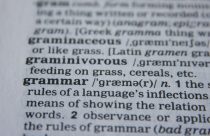How to Avoid Phrasal Verbs in Academic Writing

You use phrasal verbs daily while speaking. A phrasal verb is actually a verb made up of two or more words: the main verb with an adverb or preposition, or both. Using these words in combination gives them a meaning different from that of the individual words used. This makes them difficult for non-native English speakers to understand.
For example, the word “carry” means “to take or bear something from one place to another.” While the word “out” has multiple meanings including “moving away from a particular place; situated a particular distance from somewhere; revealed; finished.” However, when used in combination, “carry out” is a phrasal verb which means “to perform or to accomplish.”
Using Phrasal Verbs in Academic Writing
Although phrasal verbs are acceptable in spoken English, they are frequently considered too informal for academic writing. Furthermore, phrasal verbs often have multiple meanings. Your aim is to write your paper in a simple language that makes your work clear and concise. It is therefore recommended that you replace phrasal verbs with formal one-word alternatives.
“The most valuable of all talents is that of never using two words when one will do.”
—Thomas Jefferson
Types of Phrasal Verb
A further distinction is made between intransitive phrasal verbs (they have no object) and transitive phrasal verbs (they do have an object). For example:
- intransitive: They “set out” to prove that…
- transitive: This “sets off” the reaction…
In contrast to intransitive verbs, the verb and adverb can be separated in the sentence when using transitive phrasal verbs, for example:
- This “sets” the reaction “off.”
Also, if (in the transitive form) the object is a pronoun, then the pronoun MUST go before the particle:
- This “sets off” the reaction.
- This “sets” the reaction “off.”
- This “sets” it “off.” (NEVER This “sets off it.”)
Multiple Meanings of Phrasal Verbs
As mentioned above, phrasal verbs can have several meanings. Therefore, using them in your academic writing may make the meaning of your sentence unclear. Look at the use of the phrasal verb “cut out” in this example:
- These results suggest that it would be best to cut out sugar from one’s diet.
“Cut out” has many meanings depending on the context of the sentence in which it is used. Some of the meanings are as follows:
- Delete or remove (e.g., The irrelevant paragraph was cut out)
- Shape by cutting (e.g., The DNA model was cut out using scissors)
- Suit or equip (e.g., She was not cut out for the task)
- Cease operating (e.g., The engine cut out)
- Exclude (e.g., Group 2 had sugar cut out of their diet)
Therefore, a one-word alternative is necessary to ensure the reader understands the true meaning of your sentence. The above sentence would be clearer and more formal if written as follows:
- These results suggest that it would be best to exclude sugar from one’s diet.
Phrasal Verbs You Should Avoid in Academic Writing
Some phrasal verbs are too informal for your research paper or report. Following are few examples of such unsuitable phrasal verbs. The single verbs that can replace these phrasal verbs have been included within brackets:
Lots of (numerous)
Get up (rise or increase)
Put into (contribute)
Find out (discover)
Looked at (discovered)
Got together (merged)
Accounted for (explained)
Brought about (caused)
Cut out (deleted, cleaved, suited)
Acceptable Phrasal Verbs in Academic Writing
As always, there are exceptions. There are some acceptable and commonly used phrasal verbs that you can use when writing your academic report. Some examples are given below in bold typeface:
- We carried out an experiment…
- This experiment consists of three…
- As discussed by Jones et al., …
- These recommendations are based on …
- Each test was subjected to …
Have you come across phrasal verbs while reading journal articles? Did they obscure the intended message of the author? Please tell us your thoughts in the comments section below.









